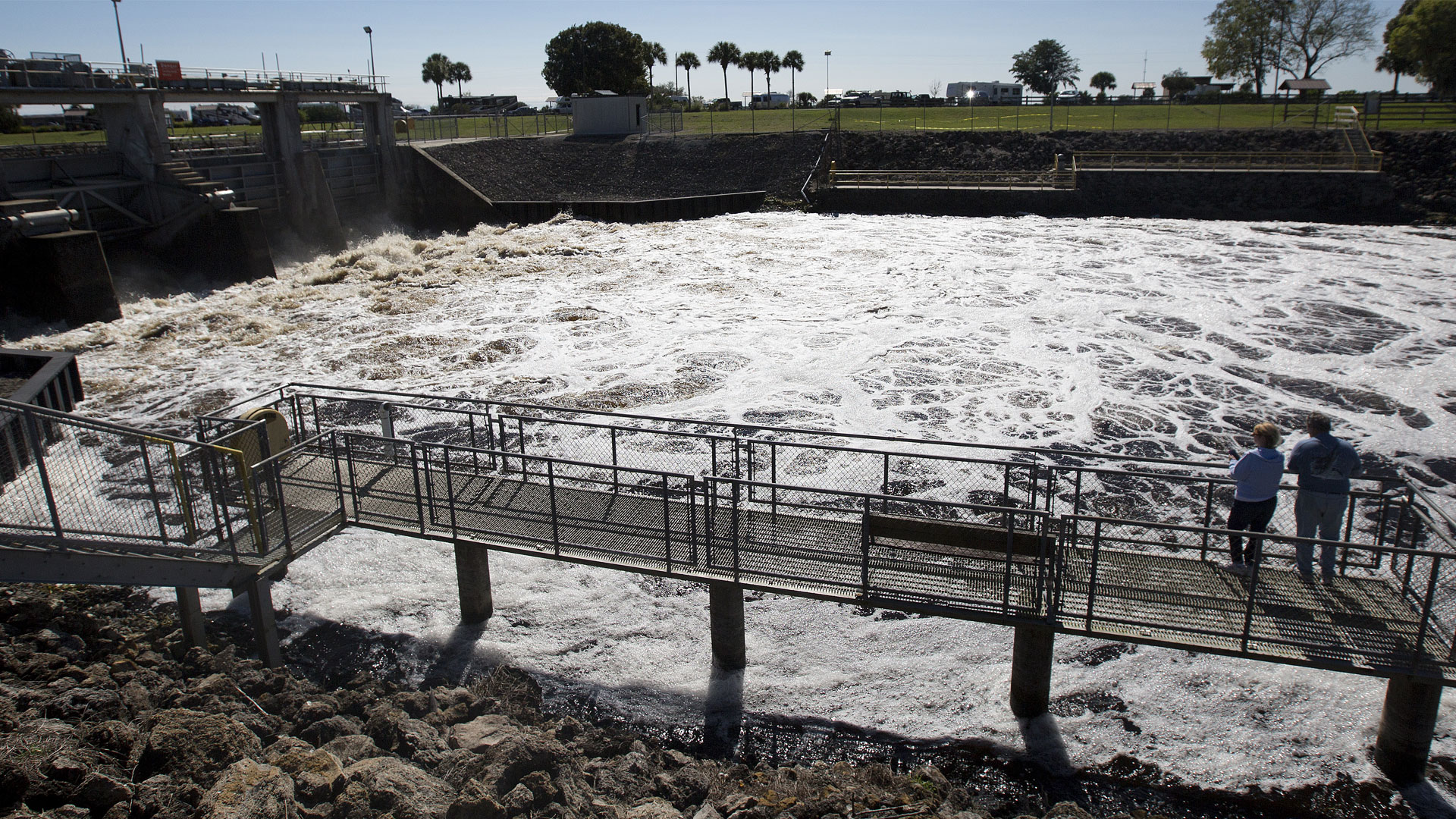U.S. Sugar blasted the Sierra Club on Monday for spreading what it called “blatantly false and distorted” information about Lake Okeechobee discharges and sugar farming’s alleged role in polluting waters draining to Fort Myers Beach and Sanibel.
During a press conference in downtown Fort Myers, the company took particular aim at a public question-and-answer session the Sierra Club held last week that blamed agricultural back pumping into the lake for the region’s water woes.
"The Sierra Club has come out with a lot of baseless and what we consider reckless accusations," said Judy Sanchez, a senior spokeswoman for U.S. Sugar. "And, if I were not a lady, I'd call them bald-faced lies."
Sanchez said sugar cane farmers do not pump water directly from farm fields into Lake Okeechobee. And she claimed that a small percentage of water entering Lake Okeechobee came south of the lake, where company farms are located.
Back pumping, she said, is controlled by the South Florida Water Management District and accounted for three-quarters of an inch of the 13-plus inches of rain added to the lake in January.
"Back pumping is used only as a flood-control measure for the communities located around the lake," she said. Back pumping is never used to protect a farm."
Sanchez blamed pollution in the Caloosahatchee River on runoffs from homes and businesses along its path.
Sanchez was accompanied by Bob Brown, technical advisor to the Everglades Protection District, who went over South Florida Water Management data, and Hillary Hyslope, executive director of the Clewiston Chamber of Commerce, who accused environmentalists of hurting business.
"They've really done a great disservice to the readers and the TV viewers of Southwest Florida, making people believe that the water quality is so terrible," she said. "I'm here to tell you that's not true; it's simply not true. The water quality of Lake Okeechobee is the best it's ever been."
A handful of Sierra Club members protested outside the Hotel Indigo, which hosted the Monday afternoon press event. They were turned away, and a hotel staffer later asked them to leave the building as they spoke to reporters afterward.
John Scott, Sierra Club Calusa Group chairman, was among them. He brushed aside U.S. Sugar's statements, again calling the company a polluter of water and air (through its practice of burning sugar cane before harvest).
"They claim that they back pump three-quarters of an inch of water. That's three-quarters of an inch of Lake Okeechobee. That is a lot of water," Scott said. "I guarantee that's a lot more water than they want you to believe that it is."
Environmentalists complain that back pumping from the farmlands south of the lake are much higher in nutrients than what is usually found in the lake.
Scott repeated the organization's calls for the state and federal government to send more water south to the Everglades. The group wants some of the land south of the lake, including land owned by U.S. Sugar, to be acquired and reverted back to wetlands.
That, the group says, would clean the lake's excess water as it makes its way south.
He also dismissed the charge that environmentalists claims are damaging the economy.
"You know what's hurting the economy and tourism? It's what looks like an oil spill in the Gulf of Mexico, because we've got highly polluted water coming from both the watershed and Lake Okeechobee. That water is not normal."
U.S. Sugar plans to further counter environmentalists' claims in advertising and social media campaign in the coming weeks.
Connect with this reporter: @FrankGluck (Twitter)


